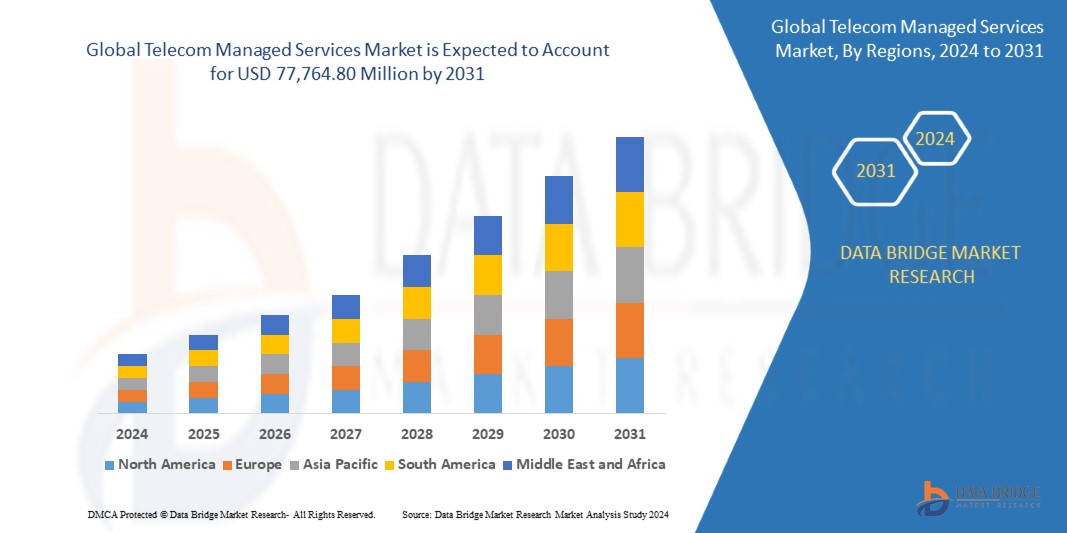Introduction
Digital transformation is no longer a term, but rather a requirement for firms seeking to remain competitive in today’s fast changing market. It includes implementing cutting-edge technologies and methods to increase efficiency, improve client experiences, and streamline processes. Telecom managed services is a critical enabler of digital transformation. These services offer businesses the ability to outsource their communication and IT infrastructure management to third-party providers, freeing up internal resources to focus on innovation and growth.Here, we will explore how telecom managed services can drive digital transformation, examining the core benefits, key offerings, and their role in supporting business success.
Definition
Telecom Managed Services refer to the outsourcing of an organization’s telecommunications and IT infrastructure management to a third-party service provider. This includes the management of voice, data, network connectivity, security, cloud solutions, and unified communication tools. Telecom managed services enable businesses to offload the complexities of network monitoring, maintenance, and troubleshooting to specialized providers, allowing them to focus on core operations and innovation. These services are designed to optimize performance, improve efficiency, reduce costs, and ensure security, all while offering scalability and flexibility to meet the evolving needs of modern businesses.
What Are Telecom Managed Services?
Telecom managed services involve outsourcing the management and maintenance of an organization’s communication systems and infrastructure to a third-party provider. These services can range from managing voice, data, and video services to overseeing the entire network infrastructure, including cloud-based solutions, cybersecurity, and unified communications. Telecom service providers take on the responsibility for delivering reliable, cost-effective, and scalable services, allowing businesses to concentrate on their core operations.
Telecom managed services can include:
- Network Management: Outsourcing the management of networks, including both on-premise and cloud-based solutions.
- Voice and Data Solutions: Offering voice over IP (VoIP) services, data networking, and connectivity solutions.
- Security Services: Managing and ensuring the protection of corporate data through secure network and communication systems.
- Collaboration Tools: Implementing and supporting unified communication platforms that allow businesses to collaborate seamlessly across locations.
- Cloud Services: Providing cloud-based hosting, storage, and computing services to support digital operations and scalability.
How Telecom Managed Services Facilitate Digital Transformation
Telecom managed services are integral to digital transformation in several ways. By modernizing communication systems and improving the efficiency of operations, these services play a critical role in enabling innovation and improving business agility.
1. Enabling Scalability and Flexibility
One of the biggest challenges for businesses in the digital age is the ability to scale operations quickly and efficiently. Telecom managed services provide businesses with scalable infrastructure that can grow alongside them. For example, cloud services allow companies to increase storage and computing power without having to invest in physical hardware. The flexibility to scale services on-demand ensures that businesses are not burdened by over-provisioning or under-provisioning resources, ultimately improving cost efficiency.
- Cloud-based solutions: Allow businesses to scale without investing in costly on-premise hardware.
- On-demand services: Ensure that resources are available when needed, providing the flexibility to meet fluctuating demands.
2. Enhancing Connectivity and Collaboration
Telecom managed services help businesses streamline internal and external communication, improving overall collaboration across teams and geographies. Unified communication tools like video conferencing, instant messaging, and VoIP solutions allow employees to connect seamlessly, improving productivity and responsiveness.
- Remote work support: Telecom services enable employees to work from anywhere, making remote and hybrid work environments more effective.
- Collaboration tools: Integrating messaging, video, and document-sharing tools into a single platform fosters smooth communication across departments.
This improved connectivity leads to better decision-making, faster response times, and more efficient workflows, all of which are vital for businesses seeking to transform digitally.
3. Reducing Operational Costs
Digital transformation often requires a significant investment in new technology, but telecom managed services can help mitigate costs by providing businesses with cost-effective solutions. Outsourcing network management and communication services reduces the need for an in-house IT team and the associated overhead costs. Additionally, telecom service providers often offer solutions that are more affordable than traditional in-house setups.
- Reduced infrastructure costs: By moving to the cloud, businesses eliminate the need for physical servers and maintenance staff.
- Lower IT management expenses: Telecom providers manage the day-to-day operation of IT systems, allowing internal teams to focus on strategic initiatives.
By lowering operational costs, businesses can redirect funds towards more strategic digital initiatives, such as product innovation or improving customer experiences.
4. Improved Security and Compliance
As businesses transition to digital platforms, they are increasingly at risk of cyber threats. Telecom managed services can enhance security by providing businesses with a secure network infrastructure, advanced firewalls, and intrusion detection systems. Telecom providers also stay up-to-date with the latest compliance regulations, ensuring that businesses meet industry standards for data protection.
- Cybersecurity solutions: Protect businesses from external and internal threats with robust network security protocols.
- Compliance support: Telecom service providers help ensure compliance with industry regulations such as GDPR, HIPAA, and PCI-DSS, allowing businesses to operate securely in regulated environments.
Having a strong security framework in place is essential for maintaining customer trust and avoiding costly data breaches, making telecom managed services an important part of any digital transformation strategy.
5. Fostering Innovation with New Technologies
Telecom managed services are often at the forefront of adopting new technologies, enabling businesses to tap into innovations that drive digital transformation. By outsourcing technology management to telecom providers, businesses gain access to the latest tools, such as 5G networks, artificial intelligence (AI), and the Internet of Things (IoT).
- Access to cutting-edge technology: Telecom providers invest in the latest technologies, such as 5G, that enable faster speeds, reduced latency, and new possibilities for digital transformation.
- AI and IoT integration: Telecom services can integrate AI and IoT into business processes, enabling smarter decision-making, automation, and data-driven insights.
By leveraging these technologies, businesses can innovate faster and enhance their product and service offerings.
Key Benefits of Telecom Managed Services for Digital Transformation
Telecom managed services provide a range of benefits that contribute directly to the success of a digital transformation strategy. Some of the key advantages include:
- 24/7 Support and Monitoring: Managed services ensure that systems are monitored around the clock, reducing the likelihood of downtime and improving system reliability.
- Expertise and Experience: Telecom providers bring specialized knowledge and experience, ensuring that businesses receive the most efficient and effective solutions.
- Business Continuity: Telecom services provide redundancy and disaster recovery capabilities to ensure that businesses can maintain operations even in the event of an outage or data loss.
- Faster Time-to-Market: Telecom managed services accelerate the implementation of digital solutions, allowing businesses to launch new initiatives faster and stay ahead of competitors.
Growth Rate of Telecom Managed Services Market
According to Data Bridge Market Research, the global telecom managed services market is estimated to reach USD 77,764.80 million by 2031, up from USD 25,142.83 million in 2023, with a 15.6% CAGR from 2024 to 2031.
Read More: https://www.databridgemarketresearch.com/reports/global-telecom-managed-services-market
Conclusion
Telecom managed services play a critical role in driving digital transformation by providing businesses with the technology, expertise, and flexibility they need to thrive in the digital age. From enhancing connectivity and collaboration to improving security and fostering innovation, these services help businesses streamline operations, reduce costs, and remain agile in a rapidly changing environment.




